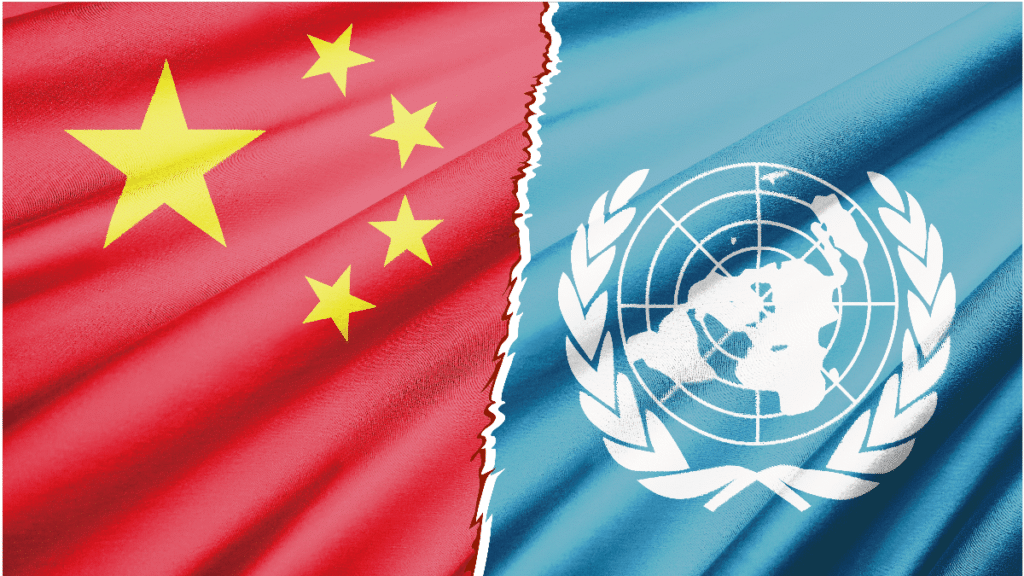China’s New UN Internet Proposal Could Resonate with Growing Economies
Justin Sherman, Konstantinos Komaitis / Jul 12, 2023Justin Sherman is the founder and CEO of Global Cyber Strategies and a nonresident fellow at the Atlantic Council’s Cyber Statecraft Initiative. Konstantinos Komaitis is a non-resident fellow at the Atlantic Council’s DFRLab and a senior researcher and non-resident fellow at the Lisbon Council.
United Nations Secretary General António Guterres recently launched the Global Digital Compact (GDC) initiative, which seeks to reposition discussions about the future of the internet within the UN system. On its face, the initiative seems pragmatic — recognizing calls for government regulation by letting countries, rather than companies and civil society, drive the internet governance discourse. According to the Secretary General’s policy brief, the GDC “would be initiated and led by Member States with the full participation of other stakeholders.”
But a new call for the UN to influence the future of the internet comes at a concerning time for the US and its allies— and an opportune time for China. More countries are having “cyber sovereignty” discussions, or conversations about where, when, and how to increase state influence or control over the internet. The motives range from democratic desires for data regulation and tech autonomy to more repressive wishes for content control and targeting of dissidents. China’s submission to the GDC falls on the latter end of the spectrum, and its clear vision threatens to resonate with other countries that seek to advance this worldview.
Over the past few decades, Beijing has shaped and structured its own digital vision and strategy under the premise of a multipolar world, where the United Nations provides the platform for state actors to determine how the internet should be governed. Chinese authorities have consistently advocated for this approach. At a few select points, though, Beijing has seized on larger windows of opportunity to advance its vision for a top-down, state-led internet model. In 2012, for instance, China introduced a proposal at the UN’s World Conference on International Telecommunications, along with Russia and others, to have the UN effectively take over internet functions run by the nonprofit ICANN and the world’s five, nonprofit regional internet registries. The proposal was struck down, but came closer than ever before to passage. These days, China is “forum shopping” its cyber sovereignty vision anywhere it can: from the Internet Engineering Task Force (IETF) to the Human Rights Council, China has been showing consistency and persistence in its messaging and strategy.
China’s recent submission to the UN GDC is no different — rehashing points about sovereignty and multilateralism, and blaming foreign countries, rather than itself, for weaponizing and dividing the global internet. But it promotes a narrative that may play right into the needs and concerns of countries in the Global South, and it exploits the opportunity presented by the UN GDC to do so. After all, the UN is now formally opening this dialogue about how the future internet should be governed.
Connecting all people to the internet is a rhetorical centerpiece of China’s submission. The “right to development is the primary and basic human right,” it reads, and countries should focus on bridging digital development divides for all. “States should respect others’ cyber sovereignty,” it continues, “as well as the right to independently choose their own paths of digital development in light of their own national conditions.” Equity, balance, and mutual benefit were frequently mentioned throughout.
It’s the kind of verbiage that will resonate with countries that are focused on digital development and feel imbalances of power in the international tech system. India, for example, refused to sign the G20’s “Digital Free Flow with Trust” proposal in 2020 because of digital divides and the government’s desire to chart its own path. Advancing “sovereignty” language within the rhetoric of development and inequity allows Beijing’s message to resonate with countries that are tired of the US perspective. Calling for “an equal emphasis on development and security” may appear to American observers as a blatantly authoritarian push for cyber sovereignty, but many other countries perceive it as a recognition of longstanding digital divides that require nationally distinct responses. Censorship and other top-down state actions can advance under the guise of bridging digital divides.
The problem for the US and many of its allies and partners, including in Europe, is the lack of such a clear vision. For decades, US policymakers have talked about a global, free, open, interoperable, reliable, and secure internet; the Quad’s 2021 statement on technology notably dropped the word “global.” But in recent years, the West has lacked specificity, such as what it meant by “openness,” in the face of China’s more specific proposals. The need for a specific and positive vision is made all the more urgent by the lack of a US privacy regime, Europe’s leading role in internet regulation, growing frustrations at Silicon Valley’s global influence, and (reductive) perceptions that the American, 2010-era “internet freedom” agenda was code for US tech hegemony.
Policymakers in Washington and Brussels should work with counterparts to articulate a more precise vision for the future of the internet that goes beyond vague calls for “democracy” and a “rights-based” approach. Focusing on specific issues such as data privacy, cybersecurity, and limiting intrusive state surveillance would paint a clearer picture. The West must also realize that its “democracies vs. autocracies” rhetoric alienates many countries in the Global South, and that its fixation on China in all things tech-related undermines other, powerful messages, such as giving companies and civil society a voice in the internet—not just governments.
While the West can claim a successful win over Russia in the election to lead the UN’s tech agency, China poses a very different and much larger kind of risk to the global internet. By crafting a more positive, specific vision around the UN’s Global Digital Compact, the US can help advance a more global and open internet for the future.
Authors


